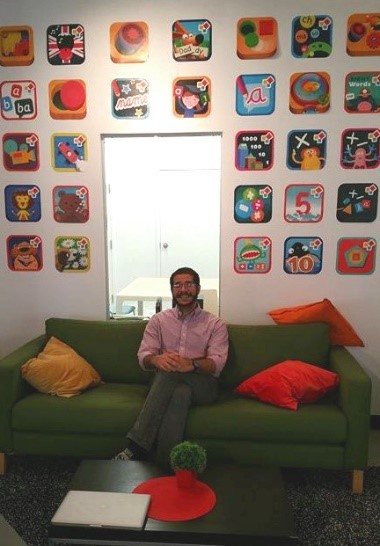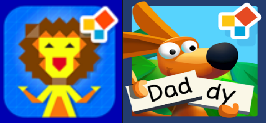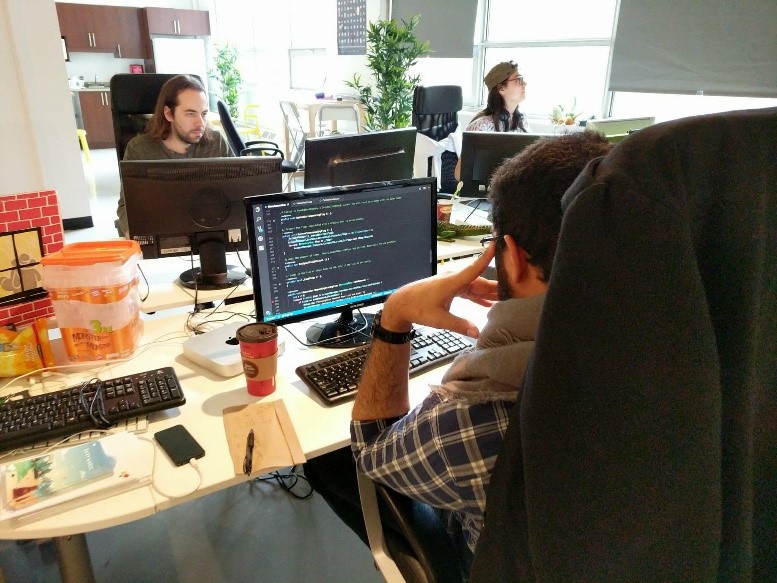Who am I?
My name is Michael Middleton and I’m a senior at Stonehill College studying Computer Science and German. I’m studying abroad this semester with Champlain College of Vermont at its Montreal campus. From the moment i started taking Computer Science classes, I’ve always wanted to try making video games. I also wanted to study abroad and practice my French, so when the Office of International Programs mentioned the Montreal opportunity my response was a rapid and excited “sign me up!”

Working at Edoki Academy
I was granted the chance to interview and accept a position at Edoki Academy beginning this past September. Originally founded as Seven Academy in 2012, the company merged with Edoki Inc. founded in 2010 to form today’s existing company. Headed by Mr. Emmanuel Guyot, the company strives to create interactive mobile applications and games for kids aged 3 – 10 utilizing Montessori Education Method. Developed in the late 19th/early 20th century by Dr. Maria Montessori, the Montessori Education Method attempts to teach children through self-discovery and interactive learning rather than the traditional directed instruction. (To learn about more about Ms. Montessori, click here.)
Located in Suite 301 of 55 Avenue du Mont Royal Est, Edoki Academy is now a multinational company with a dozen full-time developers, designers, and artists in Montreal and a vice president in Europe managing commercial connections.
Contributing to the Studio

Over the course of my internship, I was assigned two major projects and several minor bugfix tasks. The first project was a collection of upgrades to C# scripts in The Joy of Reading, (the English version of Le Bonheur de Lire) Edoki’s first full mobile game. A game that teaches kids phonics and basic spelling patterns, The Joy of Reading was created prior to built-in 2D sound management so many of the tasks involved converting calls to the PlaySoundAtPoint method to a call to Wwise’s SoundManager. (For information on Wwise, click here.) There were other small bugfixes for The Joy of Reading such changing layer ordering and texture rendering of sprites& adjusting position and rotation of sprites and animations.
My second big project was upgrading the UI/UX for Zen Studio, a meditative drawing application that emits soothing tones every time a user colors in one of the triangles that comprise the drawing panel. Before being assigned to work on the game, users had a basic grid of drawings that they could edit either freely or by following a tutorial. My task was to separate the drawings by these distinctions and implement some User Experience-enhancing changes (eg. make draggable lists snap to their nearest element when the user lifts their finger from the screen.)
In addition to these tasks, I also performed some debugging maintenance on Montessori Nature, an app where a user is given a plot of land upon which (s)he cultivates a farm while learning about the importance of nature and the environment. I also helped update the audio library for Numberland, a game that teaches kids about the numbers 0 – 9 and basic addition/subtraction.

Learning at Light-Speed & Overcoming Obstacles
As a Computer Science student at Stonehill College, my educational background has provided me the necessary experience and skills to be able to read common coding languages and quickly learn new ones as needed. However, I found myself unprepared and inexperienced in a tool that I used every day at my internship: Unity. A freely available game engine developed by Unity Technologies, the Unity game engine was never opened in the traditional Computer Science classes that I had previously taken prior to my arrival in Montreal. Fortunately, I had two amazing resources: my mentor, Jérémie, and Unity’s own documentation, without the former of which I would likely still be attempting to debug my fifth or sixth Unity-specific bug in The Joy of Reading. Even though he effectively wore three hats simultaneously, he somehow always had time to answer any question I had or listen as I walked him through some code as my living rubber duck. (For those unfamiliar with the Rubber Duck Debugging method, click here.)
Another challenge that presented itself was speaking French. For the record, I studied the language all four years of high school and spent a month living in Lyon speaking only French while there. When I returned home, I was comfortably, conversationally fluent. What I did not account for, however, was the side-effects of learning German for two years of college. If you can imagine ignoring all of the foreign language rules you had spent four years of your life absorbing in order to learn new ones only to then tell yourself “Well done! Now forget all of that, we need to speak technical French,” then you can imagine my predicament. In an attempt to challenge myself and improve my technical vocabulary, I sent an email to all of my colleagues at work and spent an entire week without uttering a word of English. What ensued was a hectic, albeit informative 120 hours of repeated questions and inquisitive looks. The results of this experiment/challenge were not all that I had hoped for – alas, I did not gain the technical French abilities of Hugo or Voltaire – however, I improved my vocabulary and was able to enjoy the numerous moments of sheer confusion that ensued when my mentor attempted to explain something to me and I stared back at him with a “deer-in-the-headlights” expression.